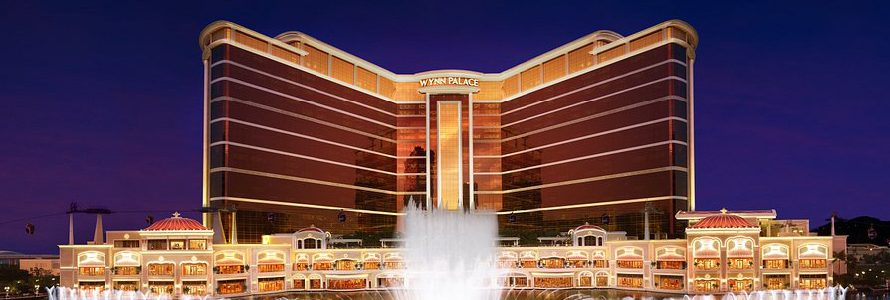Asia's leading Las Vegas-style integrated resort, Wynn Macau, can reveal that they have cut food waste by as much as 70% across several of their kitchens. Through a close partnership with Winnow that formed in 2019, the team implemented Winnow’s artificial intelligence solution (AI) - Winnow Vision - throughout much of their culinary operations.
This is a considerable feat given the scale of Wynn’s two decadent properties in Macau. Guests can enjoy Michelin star restaurants, close to the shopping district, in Wynn Macau’s towers that boast 1,000 rooms. Alternatively, more gourmet restaurants and 24 hour casinos can be enjoyed at Wynn Palace - only a few minutes away in the southern peninsula of Cotai.
In busy periods, Macau welcomes nearly 3 million visitors each month. With many of these meals eaten in the casinos and food courts, the impact of reducing food waste at Wynn is significant within the Macau ecosystem.
Wynn push sustainability agenda forward
Reducing food waste is far from the first - or only - sustainable initiative undertaken at Wynn. This is built on a simple belief that world class cuisine should not cost the earth - either financially or environmentally.
There is a ‘green culture’ within Wynn’s kitchens that create delicious plant based menus across their restaurants. Wynn have also adopted an automated water bottling plant to refill 2,000 bottles of water per hour, saving 8 million bottles annually.
Wynn started using Winnow’s technology in 2019. Wynn started to see results after only a month of using Winnow. Executive Sous Chef at Wynn Palace, Jose Lei, recalls: “After a month of using Winnow, we already saw a big change. What we were saving is not only money - money is of course important - but is even better to reduce food waste”.
Wynn are reducing an approximate 350 tonnes each year. This is roughly equivalent to the entire weight of a Boeing 777 plane with fuel and cargo.
First Macau business to adopt AI in the kitchen
Wynn have also been at the forefront of adopting Winnow’s AI technology in the region. Wynn have played a critical role in familiarising the AI model with the range of local dishes.
Building a robust set of data is crucial to computer vision - the technology behind Winnow Vision - to be effective. The dataset captured by the teams at Wynn Palace and Wynn Macau now enables machine led food waste capture. This ensures that food waste is easily recorded in Wynn’s kitchens and enables high levels of food waste reduction.
The project is led by Ruby O, Director of Environmental, Social and Governance at Wynn. Ruby describes how a whole team effort was required to make it a reality: "Winnow and Wynn’s cooperation was plan was ground-breaking...our F&B colleagues, including the chef, have been building up this database gradually and patiently to recognize our wide range of Asian dishes and ingredients”.
Food waste data helps Wynn retribution efforts
Access to food waste data has also enabled Wynn to support its redistribution efforts. By tracking food waste in their operation, they are able to identify surplus waste and divert that into their social work.
Wynn works closely with social enterprises to utilise this surplus food and turn it into products that can be used in training kitchens. For example, Wynn is able to provide training to people with special needs to give them practical skills.
“Cross sector partnership can be a way forward for the effective reduction of food waste”, says Ruby O.
Combining Winnow with other food waste reduction methods is a good way to increase the overall volume of waste reduction. In the case of Wynn, they are also combining a social angle into their overall approach.
Wynn show that waste can be reduced at scale
Wynn’s commitment to using AI technology to bring about positive environmental, financial, and social change is commendable. In the years ahead, we look forward to continuing the partnership to maximise food waste reduction.
Chef Jose Lei sums up why his culinary team care so much about waste: “Wastage makes us treasure food more”.
As the hospitality industry picks up the fight against climate change, this sentiment will be more important than ever.
What next?
Curious to learn more? As the world picks itself out of this pandemic era, responding to new challenges will be more important than ever. Read our blog on the 4 key trends that are set to define the industry going forward.








Comment on my blog